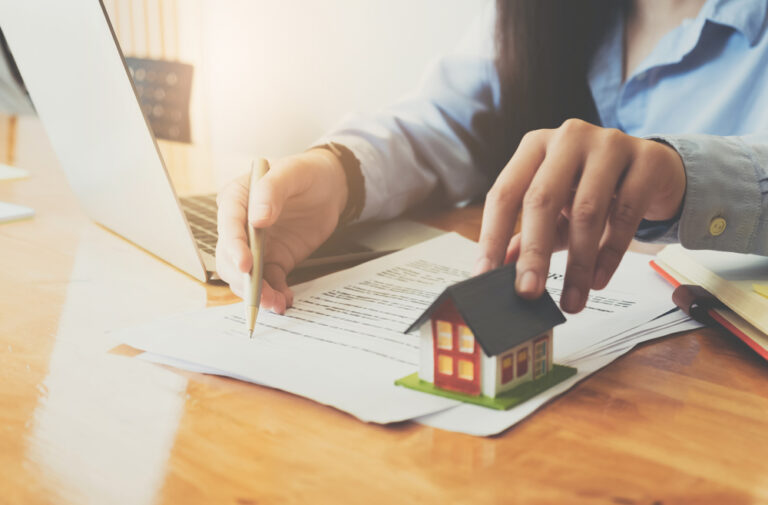Energy Performance Certificates (EPCs) are important when it comes to buying, selling or letting homes, as a property can’t be put on the market to buy or let without one (unless you can demonstrate that the building is exempt).
What is an EPC rating?
An EPC rating is essentially a rating of the property’s energy efficiency following a survey on the property from an EPC assessor. It’s a good way for buyers and renters to get an idea of how much energy bills in their new house or flat will cost. The rating is given on a scale of A-G, with A being the highest rating for those properties that are the most energy-efficient.
But what affects your EPC rating? And, how can you improve EPC ratings to make your property more appealing to buyers and letters? We answer both of these questions, offering advice on different ways to improve your property’s EPC rating.
Why should I improve my EPC rating?
Benefits of improving your property’s EPC rating
As EPC ratings are a legal requirement and need to be renewed every 10 years they’re unavoidable, with anyone able to access a property’s EPC online for free.
Moreover, against the current climate of energy prices and bills rising, being able to show to prospective tenants and buyers that your property is energy efficient, potentially more so than other similar properties on the market, is a very desirable quality. Likewise, if you’re considering selling and then buying a property be sure to compare prospective properties EPC ratings against your current property’s, to ensure you won’t be paying more in bills should you move.
In addition, as we move towards a greener future, recent studies show that 63% of renters are conscious of energy efficiency in the home. Studies also show a clear correlation between stronger energy efficiency ratings and higher house prices, showing that improvements to EPC ratings could drive up the value of your property.
Potential changes to MEES regulations
Another benefit of finding ways to improve your EPC rating sooner rather than later is the latest progress on the Minimum Energy Performance of Buildings (No. 2) Bill. Under this bill, rental properties will need to meet a compulsory energy performance certificate rating of band “C” by December 2025, rather than “E”. This is the current requirement under the latest Minimum Energy Efficiency Standards (MEES) which came into effect in April 2020.
Although the bill hasn’t been passed yet, landlords should look to make energy-efficient changes sooner rather than later to help spread costs out over the years and work towards a higher EPC rating steadily.
What affects an EPC rating?
When discussing how to improve EPC ratings, it’s important to understand how an EPC rating is calculated. Factors that contribute to the rating include:
- The type of building construction
- Uses of different areas of the building
- Heating systems
- Cooling systems
- Hot water systems
- Ventilation
- Lighting
Potential for heat or energy loss
Each area of the inspection will be given a score based on efficiency and the current condition. This will then determine how energy-efficient the property is and the assessor will then calculate the EPC rating. Once you’ve received your EPC you’ll also receive a full summary report and information on estimated energy use, carbon dioxide emissions, fuel costs and recommendations on what could be improved to increase the rating.
How to increase your EPC rating
The best place to start is with the recommendations on the summary report given when the last EPC rating certificate was given on the property. It’s also worth noting that some improvements to the property will be more costly than others, and you may want to consider investing in some bigger changes for long term gain. However large investments aren’t always needed, small and easy changes can make a big difference to your EPC rating too, it all depends on the current EPC rating, property conditions, your budget and your current circumstances.
Here are 8 ways to improve your EPC rating:
Opt for cavity wall insulation
One easy and fairly inexpensive way to increase your EPC ratings is cavity wall insulation. If your property has been built with a gap between two layers of brick, then insulation can be blown into the gap by drilling holes into the wall from the outside, which are then filled to match your brickwork.
Take a look at your loft insulation
Loft insulation helps to reduce energy loss through the roof. That’s why ensuring your loft insulation is a minimum of 270mm thick is a simple way to help improve your EPC rating.
Add double-glazing
If your property doesn't have double glazing, installing this could significantly boost your EPC rating. However if you already have double-glazing the cost of installation of triple glazing, even though it does reduce heat loss throughout the property, may not equal the small gain in improvement to the EPC rating.
Install an energy-efficient boiler
Although replacing an old boiler may be more costly than some of the other methods for improving an EPC rating, it could drastically improve your rating if your boiler is old and not energy-efficient. Installing an energy-efficient boiler alongside thermostatic radiator valves could dramatically boost your points and therefore rating overall.
Try renewable energy
Have you ever considered adding solar panels or ground source heat pumps to your property? By using more solar power within the property much more money can be saved on energy bills and can directly increase your EPC rating.
Install smart devices
There are numerous smart devices that can help make your property more energy-efficient. Smart meters and thermostats are perfect for ensuring that energy wastage is reduced. For example, if you have a smart thermostat that is controlled via an app, you can turn the heating off and on depending on when you’re in and out of the house.
Use energy-efficient lighting
Switching to LED bulbs throughout your property is one of the simplest ways to increase energy efficiency. Although the upfront cost for these bulbs may be more, they will save you money by using less energy.
Consider a secondary heating source
Some secondary heating sources, for example, fixed electric heaters, can reflect badly on EPC ratings and drag down the overall rating. However, energy-efficient secondary sources such as wood-burning stoves can score highly. If you have a fireplace, installing an energy-efficient wood stove could not only earn you extra EPC points, it could also increase the value of your property.
When it comes to learning how to improve your EPC rating, remember that not only is it a legal requirement to have an EPC rating above E, but energy efficiency is something that buyers and renters are desiring and expecting from a property.
If you’re looking to let or are thinking of selling your property, please contact the experts at your local Hunters branch should you wish to get started and we can arrange a free property valuation.




